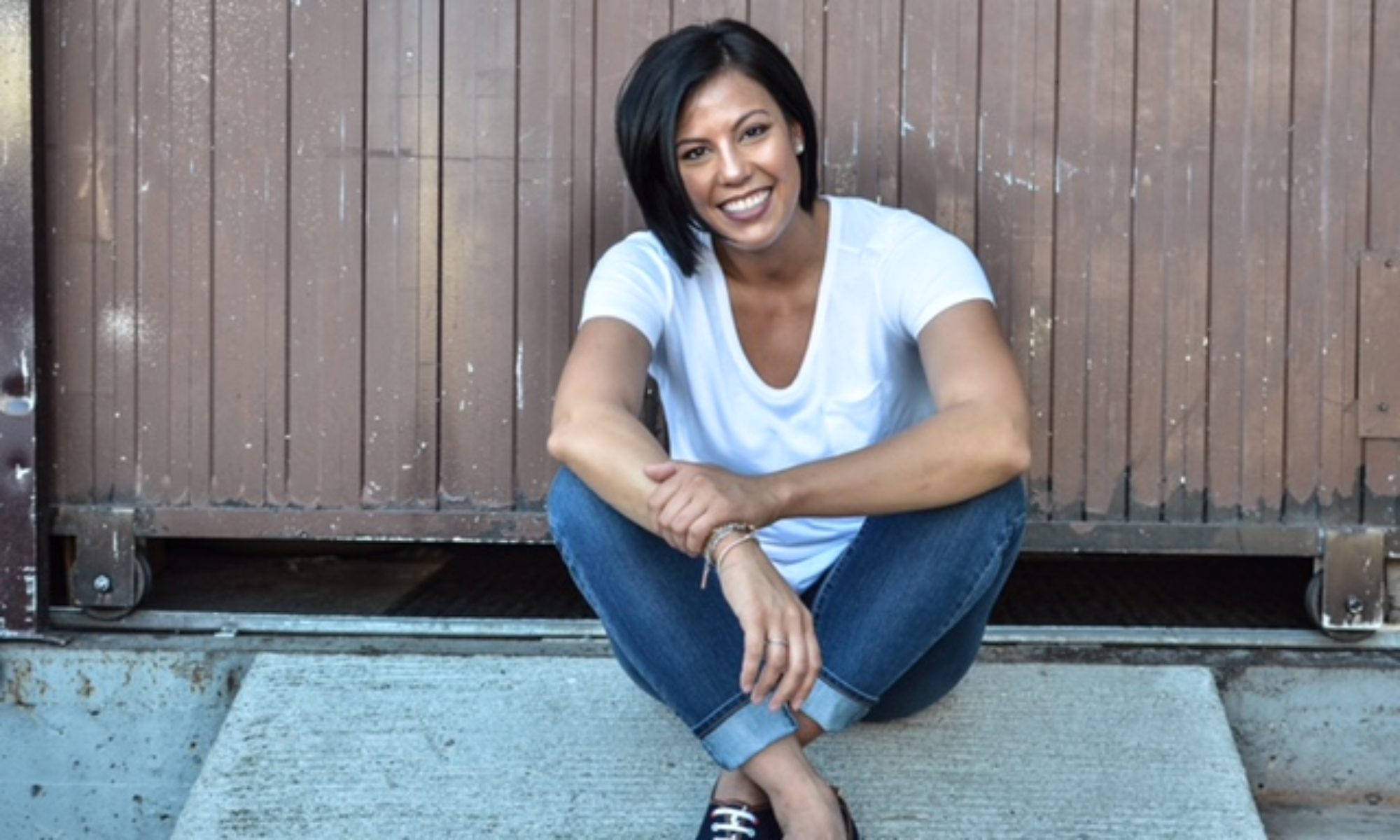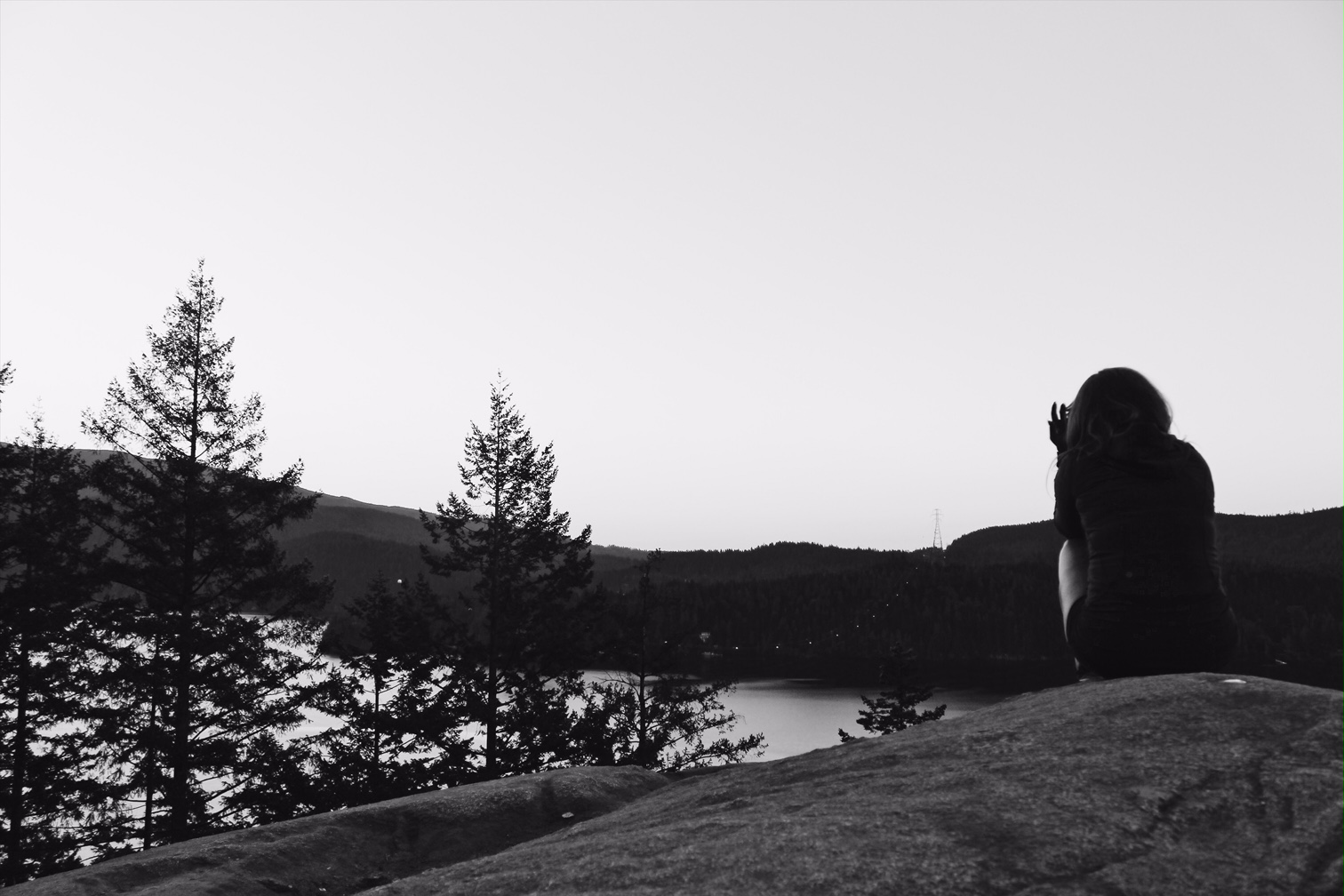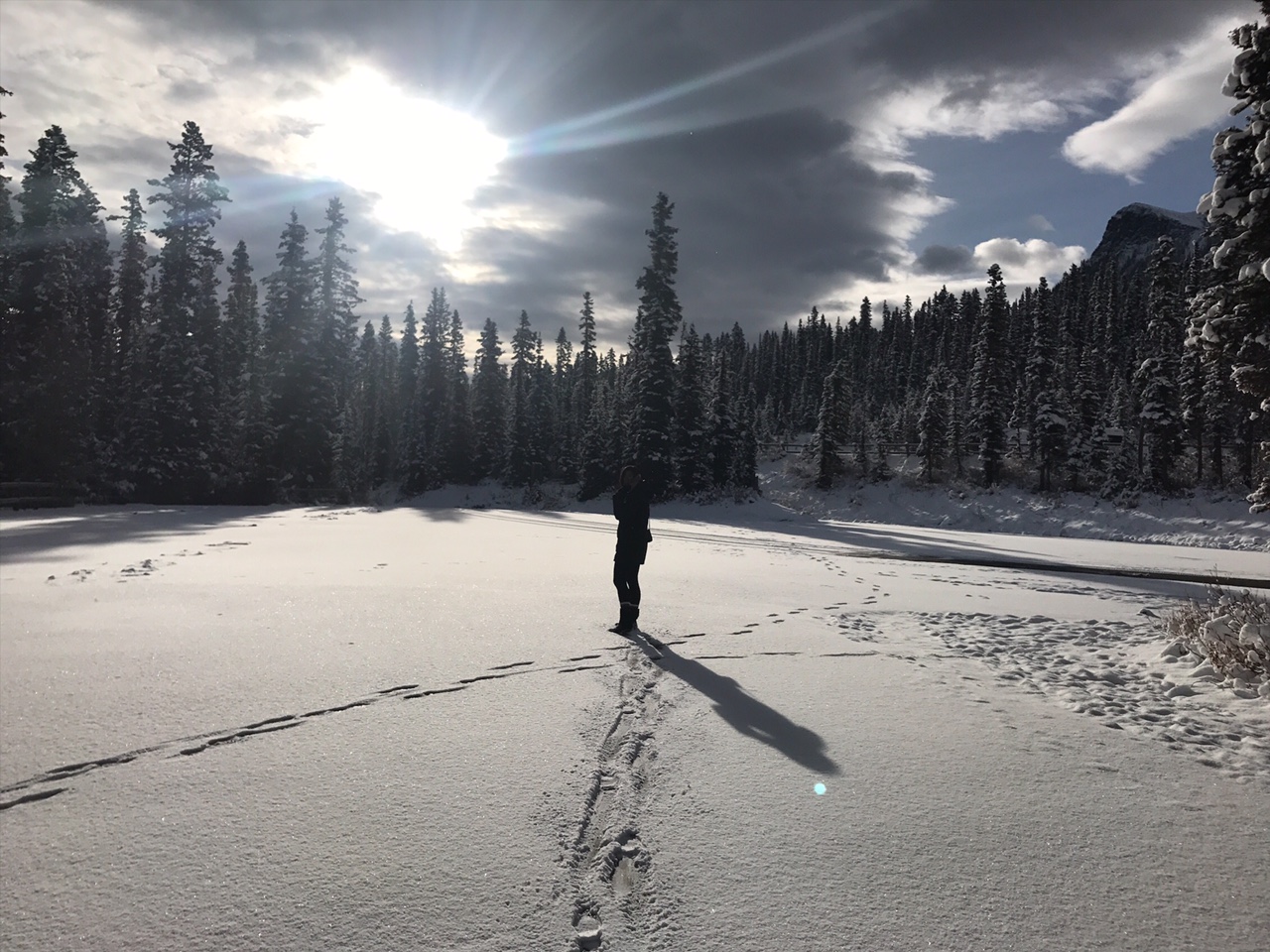I found myself at the Vancouver airport early in the morning on June 15, 2017. As I hustled through security, waited at the boarding gate, and tried to sleep on the flight, I kept my sunglasses on to hide my tears. I made it back to my apartment in Calgary by noon. It was messy and cluttered with half-packed moving boxes, and standing in the middle of the chaos, a new wave of emotions washed over me, causing overwhelm on top of the heavy grief my heart felt. My father had passed away the night before from cancer and I had been in Vancouver to spend time with him and be with my family in his very last days. Now, I was here, by myself, my life feeling like it was all out of sorts.
The timing was not great; it hadn’t even been 24 hours since my father had officially been pronounced no longer alive, and I had already left my family behind so I could finish packing my things and move to Edmonton for a new job that started in a few days. Onward to a new job in a new city that was fairly unfamiliar to me – I had done this ordeal before. But this was the first time I was packing, moving, and starting fresh without my father’s help or without him being just a phone call away when I eventually ran into a minor hiccup. I wasn’t ready to do this endeavour without him; I wasn’t ready to embrace that the rest of my life was going to unfold and continue without him there. To make matters worse, I didn’t even have my family to console me in person; they were an entire province away. I was about to start the next chapter of my life in an unfamiliar place, and I had never felt so alone.
In his 2017 article titled Researching Grief: Cultural, Relational, and Individual Possibilities, Paul Rosenblatt discusses how “family members are not good at providing grief support for one another”, going on to explain the limited capacity a family might have to support one another after losing a loved one. In just a few weeks after my father had passed, it was evident that my mother and I had different ways of processing our grief and emotions. She seemed less sentimental and more focused on next steps, and I wondered if maybe it was because she had spent so much time in the hospital with my father and therefore felt more prepared for this new reality than I was. The only other family my father and I shared aside from my mom were my half-brother and half-sister, neither of whom I had a close enough relationship to find comfort in. While feeling excruciatingly separated from my family, I found myself in a position where it felt necessary to make good impressions with my new colleagues and potential new friends, while also enjoying the beginning of summer in Alberta. I did my best to suppress any signs that I was sad and have the best time possible as I found myself in the presence of so many people who had never met my dad. The grief felt increasingly substantial for me in almost every moment, but simultaneously didn’t seem applicable in my everyday life. So often, I felt as though I had no other choice but to brave the world and live my life as though everything was fine, waiting until I returned to my apartment alone to grieve.
My strategy of grieving aligned with a theory of bereavement coping methods known as the dual process model. Proposed by psychologists Margaret Stroebe and Henk Schut, the model explains that the way an individual experiences or copes with their grief can ebb and flow between loss-oriented stressors and restoration-oriented stressors; loss-oriented stressors focus on the pain and anguish, while restoration-oriented stressors act as a distraction from the grief and inspiration to restore normality in one’s life despite the loss of a loved one. According to Stroebe and Schut, the restoration-oriented experience is necessary to ensuring people are productively taking care of themselves as life goes on, and that oscillating between the two can help an individual confront the reality of life without their loved one there anymore.
This dual process model is the primary component engaged in designing Good Grief, a program that aims to provide support and coping mechanisms for grieving young people who lost a family member to cancer. Within this program, people move between different activities aligned with the bereavement coping model that also focus on other frameworks including constructivism, self-compassion, and continuing bonds. One of the activities is the Life Imprint session, which is an exercise that encourages grieving participants to learn and remember facets of their loved one through letters written by other family members or friends. Along with reading about their loved one, participants engage in a group session where they reflect on their loss, the connection they shared with their loved one, and recognize opportunities to maintain that connection moving forward. A 2019 evaluation of Life Imprint reported that young people who participated in Good Grief found the program enjoyable and meaningful. Participant testimonials included individuals who said they felt reassured in the relationship they had had with the person who passed away and felt confident in being able to honour their loved one’s legacy while also moving on with their own life.
It was August when we finally decided to host my father’s Celebration of Life. Not knowing who exactly to invite, my mother and I invited everyone we could think of, including my father’s old friends and colleagues from before I was even born and a lot of people who had been my friends throughout grade school. Unexpectedly, many people replied that they would be there, eager to share their condolences in person and their own memories of my father’s kind, friendly, and sometimes oddly funny demeanour. In a small recreational room, catered with small finger sandwiches and sugary cupcakes, all sorts of people young and old exchanged both tales as old as time about a man I’ve never known and classic recollections of the father I had grown up admiring. A man introduced himself as the best man of my parent’s wedding and shared his fondest memories of my father from way back before I was born. Former classmates of mine from elementary school took the time to express how instrumental my father was in helping them learn and understand English, finish their homework, or even just feel valuable and seen as young students when he volunteered as a teacher’s aide in the 90’s. With other lifelong friends and cousins, I reminisced about my father’s seemingly strict parenting styles or his preference for encouraging us to use our imagination for playtime instead of watching TV all day. The entire event was an afternoon spent connecting with friends, family members, former neighbours, and strangers who had loved, valued, and respected my father for so many reasons. They had freed up time in their schedule to attend this event, to honour my father, and to share all the ways he was special. Most importantly, they went out of their way to remind me of all the ways I was an extension of who he was, because of the way I looked, behaved, and moved through the world.
On that day, for the first time since my father had passed away, I finally felt like I could comprehend the heaviness of my loss and the grief with it; the excruciating heartache I had been experiencing felt validated. Up until this point, I had spent so much of my time with people who weren’t able to speak to how significant my loss felt because they didn’t know my father, and I had really started to question the validity of my grief. Learning more, sharing stories, and reflecting on who my father was, instilled confidence in knowing that the loss I felt was big and hard. I also felt reassured that I was not the only one who felt the grand impact of my father’s passing.
Published in the New York Times, a letter titled “My Father Died Young, His Sisters Kept Me from Losing Him Entirely” by Kristen Martin talks about how her aunts have reinforced the existence of Martin’s father through their own stories of him. Martin writes, “One of the hardest parts of my grief has been never getting to have an adult relationship with my parents, that the memories I have of them are finite. But by teaching me new things about him — even silly things like his obsession, toward the end, with fried ham sandwiches — my father’s sisters can open doors to rooms I didn’t know existed. They keep him alive for me.”
I relate to Martin’s experience of qualifying the existence of her parent(s). I was fortunate to have built a relationship with my father up until I was 30 years old, but my experience with him feels limited. There was so much I didn’t know and wanted to learn about him. I’m sure there were stories that we didn’t get a chance to share or bond over. My entire adult life awaits, and I no longer have the patient guidance and advice I had lovingly relied on my father for. In so many moments, I’ve found myself stuck between feeling as though I couldn’t possibly live my life without him and wondering how I could possibly move forward without being afraid of leaving him behind. My biggest fear, even now, continues to be that I and everyone will keep moving on with life and unintentionally forget how my father had somehow influenced the journey to wherever we end up.
It has been six years since my father passed away. I am still living in Edmonton with a circle of friends who never had the pleasure of meeting my father. Often, I continue to grieve alone in my apartment, surrounded by physical reminders of my father including his favourite shirts, a pair of his glasses, his books, and a giant portrait of him hanging in my hallway. On some days, as life propels forward in a myriad of ways, I wonder if I’m the only who is thinking of my father and what life would be like if he was still alive. As I grow and my live evolves, I regularly wish that he could still be a part of it all and catch myself ready to call him, only to remember he won’t be there to pick up the phone and cheer me on.
Writing this has been a reminder that he is a part of my life, still. Validated by my own friends and family, as well as other people who considered my father to be their friend and chosen family, I am a valuable extension of so many of my father’s great qualities; I am kind, unpretentious, and a great writer because my father showed and encouraged me to be so. I also know that I am not the only person who was positively impacted by my father’s personality and behaviours, because I’ve shared sentimental memories and the incredible impression my father had with so many other people.
In what I imagined would be the darkest time of my life, I found a beacon of light through other people; most importantly, my father. Through him, both because he passed away and because of who he was, I connected to a community of people who miss him too and who will help me in keeping his spirit alive. While the grief continues to weave through moments of my life, even very recently, it no longer feels impossible. I may have lost someone I couldn’t imagine my life without, but one day with a group of people reminded that I am not alone in acknowledging his absence and I no longer feel on my own as I navigate the world without him physically here.











